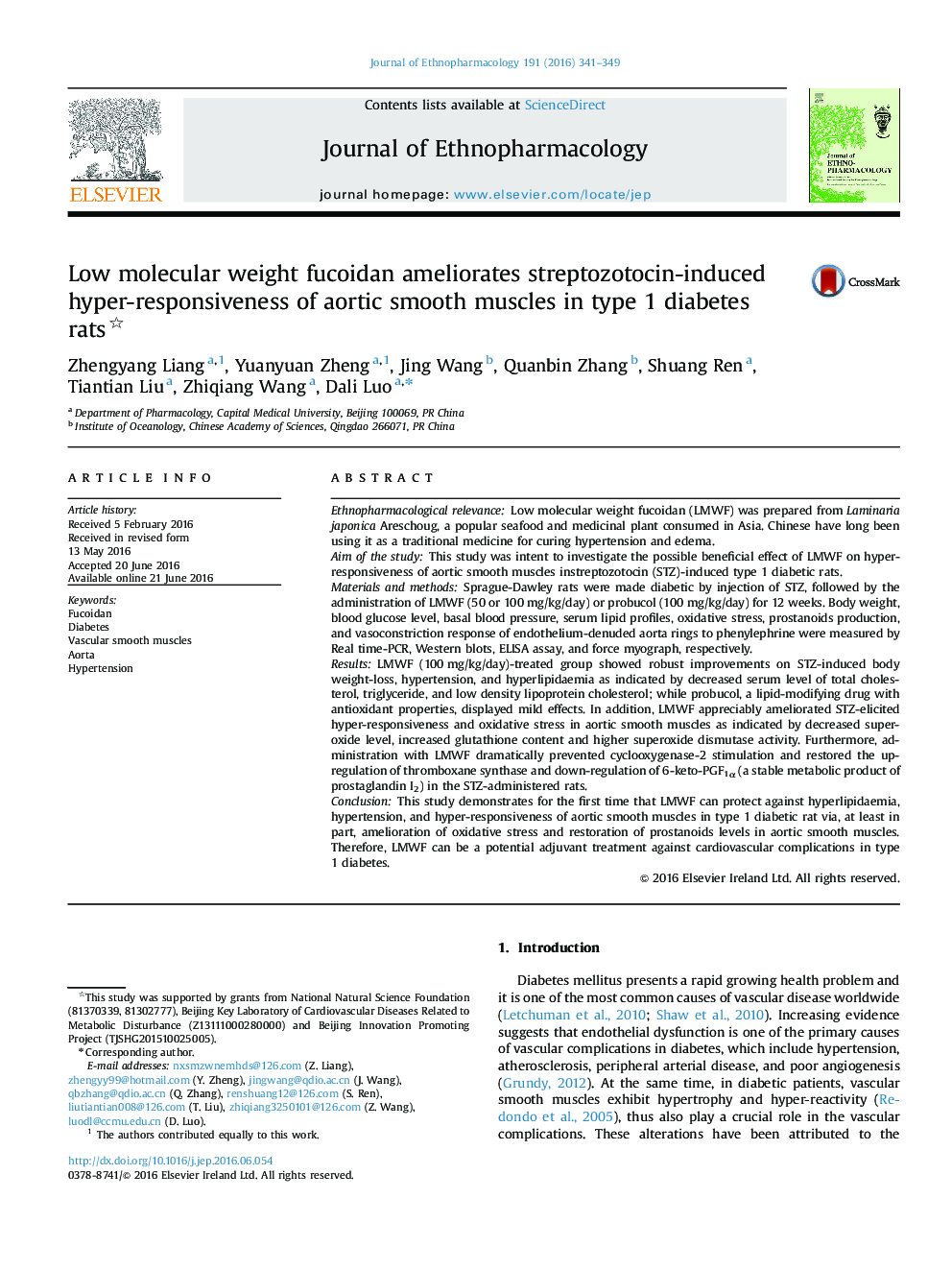| Article ID | Journal | Published Year | Pages | File Type |
|---|---|---|---|---|
| 2544596 | Journal of Ethnopharmacology | 2016 | 9 Pages |
Ethnopharmacological relevanceLow molecular weight fucoidan (LMWF) was prepared from Laminaria japonica Areschoug, a popular seafood and medicinal plant consumed in Asia. Chinese have long been using it as a traditional medicine for curing hypertension and edema.Aim of the studyThis study was intent to investigate the possible beneficial effect of LMWF on hyper-responsiveness of aortic smooth muscles instreptozotocin (STZ)-induced type 1 diabetic rats.Materials and methodsSprague-Dawley rats were made diabetic by injection of STZ, followed by the administration of LMWF (50 or 100 mg/kg/day) or probucol (100 mg/kg/day) for 12 weeks. Body weight, blood glucose level, basal blood pressure, serum lipid profiles, oxidative stress, prostanoids production, and vasoconstriction response of endothelium-denuded aorta rings to phenylephrine were measured by Real time-PCR, Western blots, ELISA assay, and force myograph, respectively.ResultsLMWF (100 mg/kg/day)-treated group showed robust improvements on STZ-induced body weight-loss, hypertension, and hyperlipidaemia as indicated by decreased serum level of total cholesterol, triglyceride, and low density lipoprotein cholesterol; while probucol, a lipid-modifying drug with antioxidant properties, displayed mild effects. In addition, LMWF appreciably ameliorated STZ-elicited hyper-responsiveness and oxidative stress in aortic smooth muscles as indicated by decreased superoxide level, increased glutathione content and higher superoxide dismutase activity. Furthermore, administration with LMWF dramatically prevented cyclooxygenase-2 stimulation and restored the up-regulation of thromboxane synthase and down-regulation of 6-keto-PGF1α (a stable metabolic product of prostaglandin I2) in the STZ-administered rats.ConclusionThis study demonstrates for the first time that LMWF can protect against hyperlipidaemia, hypertension, and hyper-responsiveness of aortic smooth muscles in type 1 diabetic rat via, at least in part, amelioration of oxidative stress and restoration of prostanoids levels in aortic smooth muscles. Therefore, LMWF can be a potential adjuvant treatment against cardiovascular complications in type 1 diabetes.
Graphical abstractFigure optionsDownload full-size imageDownload high-quality image (158 K)Download as PowerPoint slide
